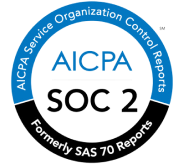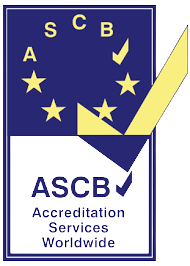Table of Content
- Introduction
- Top 7 Reasons that Show Why Younger Generations are Disengaged (With Solutions)
- Shorter attention span:
- Working in silos:
- Rigid work culture:
- Mismatch in job expectations and reality:
- Shifts in priorities among younger generations:
- Economic challenges:
- Unstable mental health and well-being:
- Conclusion:
- FAQs on Disengaged Younger Generations at Workplaces:
Introduction
Discover why younger generations are disengaged at their workplaces from the post below. Reading about this is important to mentor, coach, and direct the staff to be more productive, engaged, and efficient in the long run.
For instance, HR managers can find out the disengagement rate and disengaged employees by diving deep into the Happiness Meter insights.
Employees can record their daily emoticons on the virtual biometric system. This will help the HR manager to know more about the real-time insights of the employees and their emotions.
So, if you’re an HR manager who wants to know more about why your younger employees are disengaged, read the post ahead. You'll gain plenty of insights and smarter solutions right away.
Want to skip the post?

Top 7 Reasons that Show Why Younger Generations are Disengaged (With Solutions)
Shorter attention span:
The younger generation has more issues and challenges when it comes to sharpening their laser focus. They can hold their attention toward a topic for 3-5 seconds max. This negatively impacts their productivity in the long run.
Laser-sharp focus is something they need to work on constantly to improve their output. Thus, without the constant and purposeful mentoring sessions, they struggle initially while being hired, to contribute with an impact.
The solution here is to invest regularly in the timesheet management module to ensure your time is managed effectively.
Working in silos:
Wondering why younger generations are engaged at your workplace? Working in silos could be one of the major reasons for burnout and feeling less interested in contributing. Remote workers and employees often go through this type of issue.
They interact less, and thus, they have less empathy towards their colleagues scattered across boundaries or geographies. They need an interactive intranet to improve their collaboration and coordination.
Rigid work culture:
Another reason the younger generation is distracted, and disengaged is that they are not getting the workplace culture they deserve. They need a mature, loving, nurturing, and progressive work culture.
They find it hard to figure out the organisational culture when there is no structure or policy. Thus, to extract better output from younger generations always on the lookout for the next opportunity, HR managers must streamline the culture with smart HR software.
Mismatch in job expectations and reality:
Young employees might have totally different expectations starting from their first day. When these mismatches between job expectations and reality widen, it disheartens and disappoints the staff, who then become disengaged.
To engage your younger staff more often, ensure to provide them clarity on their goals and KPIs. This includes setting updated KRAs using AI Suggest offered by uKnowva HRMS to reduce your workload as a reporting manager.
Shifts in priorities among younger generations:
The Gen-Z mentality is purpose-oriented, with a significant inclination towards social impact, sustainability and equality at every stance of work and life.
Certain new values drive them, which must also be the existing elements of their company’s values.
This generation, usually, has a rational approach to almost every task they perform and expects total transparency in the workplace.
It might look challenging for HR managers to engage this generation at workplaces initially.
However, building engagement strategies fit for younger generations helps to bridge this gap.
The best solution to engage your younger generation more often and keep them from feeling disengaged is to show them their KRAs and KPIs in advance. This will bridge the gap between the management and the new hire.
They can have the creative and intellectual freedom to reach the end goal set up by their reporting manager. This will help the younger generation to bridge the gap and engage more to complete their tasks independently on the HRMS.
Economic challenges:
Younger generations have faced more economic challenges in the last twenty years, such as high student loan debt, rising housing and other living costs, stagnant wages, and limited job opportunities.
These challenges hinder their ability to establish themselves in the workforce, achieve financial independence and pursue their aspirational careers.
When the younger generation is unable to find the right job and role for themselves, they do not empathise easily. They need time and effort from the other end of the workplace to feel homely, welcomed, and part of the core and contributing team.
The probable solution here is to hire the talent based on their skills, experience, and expertise. Do not discriminate against talented people based on their demographics, gender, or any other personal information.
Then, implement an AI and automated hiring approach to close various job openings quickly.
Unstable mental health and well-being:
A recent Gallup report states that 68% of Gen-Z and young millennials burn out at the workplace, evidently higher than the other generations.
One major reason is that employees are unable to feel emotionally attached as one of the core parts of the team.
Employees have to stay online through different mediums which leads to information overload.
Companies must praise the practice of actively using a social intranet rather for communication, media sharing, participation in polls, providing employee reports, etc.
Conclusion:
It’s very important to understand why younger generations are disengaged. This helps you to reform the culture of your organisation from pre-hire to post-retire.
Then, you can continue to reengineer the mindset of new and existing hires and ensure they engage on a unified tool like our HRMS without additional effort and burden.
FAQs on Disengaged Younger Generations at Workplaces:
- What role does technology play in addressing or exacerbating disengagement among younger generations?
Technology can both help and hinder engagement among younger employees. While technology enables flexibility and collaboration, excessive use or reliance on digital communication may lead to feelings of isolation or burnout.
- What impact does disengagement among younger generations have on employer branding and recruitment efforts?
Disengagement among younger generations can negatively impact employer branding, making it difficult to attract and retain top talent. Potential candidates may be deterred by negative reviews or perceptions of disengaged workplace culture.
- Are there any generational differences in the factors that contribute to disengagement?
While there may be some common factors contributing to disengagement across generations, such as lack of recognition or career growth, younger generations may place greater emphasis on factors like work-life balance, purpose-driven work, and opportunities for learning and development.












